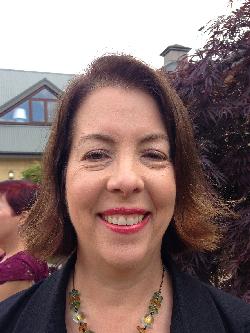Jesus chooses the unlikely
by Jennifer Lumsden
My parents met in China after travelling from opposite ends of the world for language study in preparation for mission work. Mum from Toronto and Dad from Melbourne. After clandestine ‘dates’ in the cemetery, the only place with any privacy, they married and left for Malaysia, as the Communists closed in.
The challenge of village life was formative for Ewan and Priscilla. They countered the isolation by establishing a foundation of love, service and respect for each other and trusting the Lord Jesus. One strategy agreed upon early was to avoid complaining because they knew it would consume their energy, wear them down and distract them from their work.
The strong foundation stood them in good stead and, I wonder if it would have developed to the same extent with a more ‘ordinary’ start to married life, we will never know.
A young girl, Dorca came to work for them doing household tasks and some childcare of my older siblings. Mum taught Dorca English and, in turn, she helped Mum with Cantonese.
Born in a low-income family, Dorca was illiterate and did not have access to school. She would not have expected to meet an educated English speaking man, let alone one who treated her with respect and courtesy. Dad treated everyone the same way and did not foresee how significant it would be for Dorca. For Dorca seeing up close how Dad treated Mum, how they cared for and helped each other, and Dad’s kindness and respect towards Dorca surprised her and led Dorca to consider the God my parents loved and spoke about. The God who had brought them far from their home to share Jesus with strangers, the God of Love who did care about people without means. Subsequently, Dorca took the step of faith in Jesus.
Following the years in Malaysia, we settled in suburban Sydney and the local Anglican parish.
Life was busy raising a large family, working and serving in the parish and community and soon after a new vicar arrived who staunchly opposed the ordination of women.
My parents understood that God gives gifts and talents for the common good, for the building up of all. Dad was a lay preacher, often on the parish council, led bible studies as did Mum, both were on music rosters, givers of hospitality and pastoral care. The parish leadership did not allow women to preach. While Dad disagreed, he was gracious and respectful, providing a counter view, leading at times to the ire of the leadership.
Dad would say, ‘on the mission field there are single women who go to isolated, difficult and sometimes dangerous places and as part of their work they do everything that is needed to serve that community. They perform baptisms, weddings, funerals, they preach, teach bible studies and give communion. Then when they return to their home country, in the west, the church says ‘you can’t preach because we don’t allow women to’. It doesn’t make sense; it seems like a double standard. We are to use our gifts, whoever and wherever we are.’
Mum, who was also theologically trained, would have enjoyed the opportunity to preach but was denied.
The parish introduced the Philosophy of Christian Womanhood, a course promoting the view of husbands being head of their wives and wives to submit to their husbands. Mum and Dad modelled their marriage on mutual service and were concerned that the course content could have a detrimental impact on women and their husbands.
Mum was well researched on the subject and presented a critique of the course, regularly lending books and articles to others. Mum felt compelled to discourage women from attending, and her actions did rile the leadership.
Dad was scolded for being an ineffective husband, for not reining mum in. The telling off was counterproductive because Dad did not see his role to rein Mum in. Pure and simple. He saw his role to encourage, to support, to enable, to love, and to serve Mum, which he did. Great work, Dad.
We often joked as a family about Dad being told off for not keeping mum under control by shutting her down.
Mum and Dad went about serving quietly and graciously despite being frozen out at times. From their example, I saw a need to ask questions and not always accept what authorities say and be gracious to all.
After Dad died, Mum, who was now in her 70s, attended another church where she was invited to preach. She valued every chance she got, and Mum never took for granted the opportunity, preaching well into her 80s. Well done to that community and leadership.
I am curious about any detrimental consequences of mum preaching a dozen or so sermons. How much do we lose by excluding people based on gender? Everyone loses.
As a young woman, I remember a church leader agreeing with me that it was time for women to assist with communion, but did seem to take a long time to happen. That now seems archaic.
After being a long term member of the Movement for the Ordination of Women (MOW), Mum said it was time for me to take up the baton. At the time, I thought gender equality was an old issue, but I was wrong, it’s more insidious.
There have been wonderful women and men in my life who showed me an openness to people who are different and how to extend the hand of Jesus, some did so with courage in the face of being sidelined by authority.
Jesus is the great connector, who reaches out across what divides. His love propels Him to draw others to Him, to love, to forgive and be part of His work in our world. He doesn’t have preconceived ideas about people, he draws them in. He is not as we are, never caught off guard or limited in how He responds.
At the death of their brother Lazarus, the two sister respond differently to grief. Jesus engages with Martha on a theological discussion because that’s where her grief led her. On the other hand, her sister Mary’s grief was raw and demonstrative, so Jesus does not respond with a theological discussion, not because Mary couldn’t keep up but because her response to grief was to seek comfort and share her sorrow, Jesus responds with tears. Jesus knew the intellectual rigor the sisters had and He fed their appetite for teaching.
He didn’t then and He doesn’t now have a pigeon holed view of women and neither should we.

Born in Malaysia, I grew up in Sydney, then moved to Melbourne 12 years ago with my family.
I enjoy storytelling, in various forms; working with people to tell their stories, supporting people with disability tell their stories and telling biblical stories. In recent years I performed the stories of Jesus with women which allowed me to spend a lot of time soaking in these interesting encounters. I marvel at the way Jesus acts in unexpected ways.
I have been part of a local group that has hosted a number of indigenous events. I am a long-time supporter of TEAR Fund. I love the beach, am a keen walker and like to cycle. I enjoy reading and among my favourite books are the Lord of the Rings, The Tartan Pimpernel and I enjoy historical fiction.





